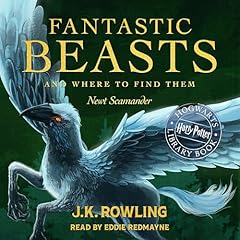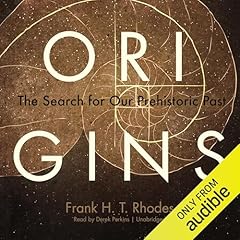
The Dodo
The History and Legacy of the Extinct Flightless Bird
No se pudo agregar al carrito
Add to Cart failed.
Error al Agregar a Lista de Deseos.
Error al eliminar de la lista de deseos.
Error al añadir a tu biblioteca
Error al seguir el podcast
Error al dejar de seguir el podcast
 Exclusivo para miembros Prime: ¿Nuevo en Audible? Obtén 2 audiolibros gratis con tu prueba.
Exclusivo para miembros Prime: ¿Nuevo en Audible? Obtén 2 audiolibros gratis con tu prueba.Compra ahora por $9.76
-
Narrado por:
-
Bill Hare
“The dodo never had a chance. He seems to have been invented for the sole purpose of becoming extinct and that was all he was good for.” (Willy Cuppy, 19th century American humorist and literary critic)
At one point or another, just about everyone has heard of the dodo bird, which is almost universally described as a cuddly, whimsical creature renowned for its alleged stupidity.
This prehistoric avian had been known for hundreds of years, before it was made popular around the world in Lewis Carroll’s 1865 classic Alice's Adventures in Wonderland. The character, the Dodo, satirized the author himself. According to pop culture lore, Carroll, whose real name was Charles Lutwidge Dodgson, regarded the dodo as his spirit animal due to his alleged stutter, which led to him often presenting himself as “Do-do-Dodgson". Carroll was also a frequent patron of the Oxford Museum of Natural History, which served as an inspiration for his memorable anthropomorphic characters.
The 1951 Disney animation Alice in Wonderland breathed new life into Carroll's Dodo, portrayed as a plump, peach-faced creature with a bulbous pink beak, clad in a purple waistcoat, a powdered wig, and a pipe dangling out of his beak.
Like its real-life counterparts, the Dodo was depicted as a flightless bird who crossed paths with Alice, bobbing along inside of a bottle upon the open sea. Owing to its inability to fly, the Dodo uses an upside-down toucan as his boat, and the Dodo is being maneuvered by a green hawk furiously flapping its wings, serving as the boat's propeller.
The dimwitted, carefree dodo also made various appearances in film and TV shows over the years, such as Yoyo Dodo in the 1938 black-and-white animation Porky in Wackyland, the short-lived stop-motion animated series Rocky and the Dodos, and the 2002 animated film Ice Age, which depicts the dodos as a silly, clumsy troop of birds who fail to guard three small watermelons.
Indeed, the dodo's presence in literature, picture books, music, video games, and general pop culture has been so prevalent that it has secured its own entry on TV tropes, where it is infamously immortalized as the “dumb dodo”.
This only scratches the surface of the string of misconceptions that has plagued the delightfully peculiar bird for centuries. Along with stereotypical depictions in literature, film, and other mediums of pop culture, a number of idioms playing on the bird's alleged idiocy, as well as the supposed role it played in its own extinction, have become irreversibly cemented in the English lexicon.
“Dodo” and the even less tactful “dumb dodo” are slang terms directed at dense individuals, an explicit reference to the bird's sluggish reflexes and supposedly pint-sized brain. One may have also come across a business venture or a fad that has “gone the way of the dodo” or is “as dead as a dodo”, meaning that the venture has become defunct, obsolete, or a thing of the past, most likely due to reckless and half-baked business practices.
The phrase “deaf to reality like a dodo” has also been thrown around quite frequently in recent years, used to describe individuals who are overly trusting and blissfully ignorant of unpalatable facts and ugly truths. But were the dodo birds truly as simple-minded as they are often portrayed? And what were the actual factors behind the zany avian's extinction?
The Dodo: The History and Legacy of the Extinct Flightless Bird looks at the origins of the bird, human contact with it, and how the species went extinct.
©2020 Charles River Editors (P)2020 Charles River EditorsLos oyentes también disfrutaron:




















Informative
Se ha producido un error. Vuelve a intentarlo dentro de unos minutos.
Excellent short book
Se ha producido un error. Vuelve a intentarlo dentro de unos minutos.


